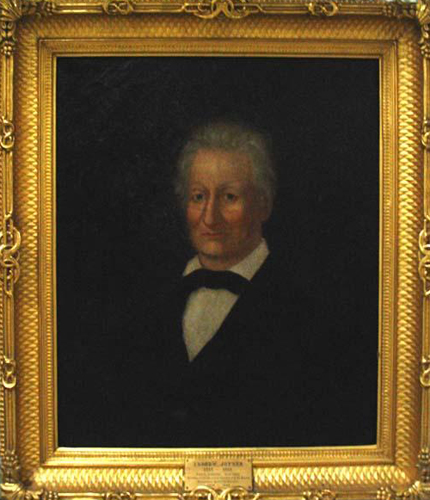5 Nov. 1786–20 Sept. 1856

Andrew Joyner, legislator and army officer, was born in Halifax County, the son of Henry (d. 1803) and Menie Troughton Joyner. An able legislator and promoter of internal affairs in state government, Andrew Joyner represented Martin County in the House of Commons from 1811 to 1813. During the War of 1812, he served for two years as a second major in the Third North Carolina Regiment of volunteers; in 1814 he was transferred to a new division and there made lieutenant colonel of the First Regiment. After the war he returned to his native county.
In 1826 Joyner and Cadwallader Jones formed the Roanoke Steamboat Company, which saw the first steamboat travel up the Roanoke River to Halifax on 15 Apr. 1829. In 1835 Joyner's Roanoke Navigation Company built the canal from Danville, Va., to Weldon—Weldon Orchard being an important railroad junction for the canal. Joyner was also president of the Seaboard and Roanoke and the Weldon and Portsmouth railroads.
From 1835 to 1852 he served in the North Carolina Senate, of which he was speaker three times (1838, 1840, 1846). As a Whig, Joyner promoted internal improvements in the legislature. In the 1836–37 session, he served on the Joint Committee of Twenty-Six (15 Whigs and 11 Democrats) to advise on the use of surplus revenues. Influenced by Dorothea Dix, he also supported a bill to establish a state school for the deaf, dumb, and blind in Raleigh.
Joyner was a trustee of The University of North Carolina for nineteen years (1836–56). In January 1839, he, David L. Swain, and William A. Graham formed a committee that reported in favor of providing new halls for the Dialectic and Philanthropic literary societies, especially for housing their growing libraries. Admired for his fairness and integrity, Joyner also served as a justice of the peace and an arbitrator in local disputes. His judicial endeavors earned his residence the name of "Colonel Joyner's Court of Equity."
By his first wife, Temperance Williams, the daughter of Colonel William Williams of Martin County, Joyner had five children: Elizabeth (m. the Revered Robert Oswald Burton); Henry, a physician (m. Ann Elizabeth Pope); Martha Williams (m. Colonel Archibald Alexander Austin and later, in 1856 in Halifax County, Francis P. Haywood); Temperance (m. Dr. Willie Jones Eppes of Virginia); and Mary Camilla (m. William A. Daniel in 1850 in Warren County). In the fall of 1839, he married Sarah Wales Burton, the widow of Governor Hutchins G. Burton and the daughter of Willie and Mary Montford Jones of Halifax.
Joyner was baptized and confirmed in 1852 at St. Mark's Episcopal Church in Halifax. He was buried in the family cemetery at his plantation, Poplar Grove, four miles west of Weldon.